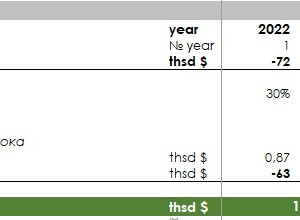The AI Revolution in Finance
The financial industry is on the brink of a transformative shift, driven by the integration of artificial intelligence (AI) into everyday banking operations. With AI’s potential to optimize decision-making, streamline operations, and personalize services, it’s no wonder the global financial sector is paying close attention. Recently, Citi’s Global Perspectives and Solutions (GPS) published a groundbreaking report titled AI & Finance: Bot, Bank & Beyond, offering a detailed analysis of how AI is expected to impact the financial industry. As this shift unfolds, banking clients, both corporate and individual, stand to benefit from improved experiences, smarter solutions, and a more efficient financial system.
In an era where Saudi Arabia has been at the forefront of tech innovation, this report is particularly relevant as it highlights the impact AI could have on global banking trends, including the MENA region. From autonomous agents making decisions on behalf of clients to AI-powered assistants revolutionizing personal finance, Citi’s report gives a glimpse into a future where AI is inseparable from finance.
AI’s Growing Influence on the Financial Sector
The Citi report highlights that AI is already transforming finance by empowering clients, increasing operational efficiency, and even creating new job opportunities. AI is not just a trend but a key driver that could boost the banking industry’s total profits to nearly $2 trillion by 2028, increasing by 9%, or $170 billion, compared to current figures. This represents a huge opportunity for financial institutions to enhance profitability by leveraging AI for both client-facing and internal operations.
David Griffiths, Citi’s Chief Technology Officer, emphasizes the potential of Generative AI (Gen AI) to revolutionize the banking industry. “The pace of adoption and impact of Gen AI across industries has been astounding as it becomes clear that it has the potential to revolutionize the banking industry and improve profitability,” says Griffiths. At Citi, the focus is on implementing AI responsibly, ensuring that it complements human roles while maximizing efficiency.
AI-Powered Banking Assistants: Smarter, Faster, and More Efficient
One of the most exciting possibilities outlined in Citi’s report is the concept of AI-powered assistants embedded into consumers’ everyday financial lives. Imagine having an AI-driven personal assistant that can manage your finances, optimize investments, and secure the best deals for loans or credit cards—all without you lifting a finger.
According to Ronit Ghose, Head of Future of Finance at Citi Global Insights, AI will make clients “smarter” by helping them make informed financial decisions. Ghose predicts that soon, every client will have an AI assistant in their pocket, capable of automating decision-making processes and enhancing personal finance management. These assistants would analyze market trends, predict consumer behavior, and offer personalized financial advice-all in real-time.
Will AI Replace Human Jobs in Banking?
A major concern surrounding AI’s adoption in finance is its potential impact on the workforce. Will AI reduce the need for human employees, or will it simply shift the skillset required for new roles? Citi’s report sheds light on this important issue, highlighting that historical technology adoption hasn’t significantly reduced the number of finance jobs, but it has changed the workforce mix. As AI automates routine and repetitive tasks, it frees up employees to focus on higher-value activities.
While some low-skill roles may be replaced by automation, demand for talent in governance, compliance, and AI-related roles will continue to grow. AI requires human oversight, especially in areas like ethics, transparency, and risk management. In fact, Citi’s 2024 survey suggests that the war for AI talent is far from over, as banks and financial institutions struggle to attract and retain top AI experts.
How AI Can Boost Productivity in the Financial Sector
One of the most compelling arguments for AI’s integration into banking is the potential for massive productivity gains. By automating routine tasks and streamlining processes, AI allows employees to focus on high-value activities such as strategic decision-making, customer relations, and product innovation. For instance, Citi’s report highlights that Generative AI could revolutionize internal-facing tasks such as content and information management, coding, and software development, making banks more agile and responsive to market needs.
As AI improves operational efficiency, banks will likely see reduced costs and increased customer satisfaction. Automated systems will be able to handle everything from account management to fraud detection, making banking faster and more secure. The potential for AI to enhance productivity is perhaps most evident in the automation of client interactions, where chatbots and virtual assistants can provide instant responses, reducing wait times and improving user experience.
AI Governance: Navigating the Ethical and Regulatory Landscape
With the increasing integration of AI into finance, concerns over ethics and governance are at the forefront of discussions. As AI becomes more advanced, financial institutions must navigate complex regulatory landscapes to ensure that AI-driven systems operate transparently, fairly, and ethically.
Citi’s report emphasizes the importance of strong governance frameworks to prevent misuse or unintended consequences of AI applications in finance. It highlights that while AI can significantly boost operational efficiency, it can also introduce new risks if not properly managed. Issues such as data privacy, algorithmic bias, and transparency in decision-making are critical areas where human oversight remains essential. As AI continues to evolve, banks will need to collaborate closely with regulators to ensure that the deployment of AI systems aligns with both industry standards and societal values.
TOP MANAGERS CITI
Jane Fraser CEO, Citi
Brent McIntosh Chief Legal Officer & Corporate Secretary, Citigroup
Mark Mason Chief Financial Officer, Citi
David Livingstone Managing Director at Citi Group
Sara Wechter Chief Human Resources Officer, Citi
Anand Selva Chief Operating Officer at Citi
CITI company profile by Crunchbase

The Future of Finance: AI-Driven Innovation and Client Empowerment
AI’s potential to revolutionize finance goes beyond mere operational efficiency. As Citi’s report suggests, AI will empower clients by providing them with tools and insights previously reserved for financial experts. By democratizing access to data and offering personalized financial solutions, AI could make consumers and corporates alike “smarter” in their financial decision-making processes.
Whether it’s AI-powered bots that can scan the market for the best loan offers, or advanced algorithms predicting market shifts, AI is set to enhance the overall client experience. This technology will not only make banking more accessible but also more tailored to individual needs, offering personalized recommendations that take into account unique financial goals and preferences.
Key Highlights from Citi’s AI & Finance Report
- $2 Trillion Profit Potential: AI could increase banking industry profits by 9% to nearly $2 trillion by 2028.
- Productivity Gains: AI is set to automate routine tasks, allowing employees to focus on high-value work.
- Governance and Talent: While some roles may be replaced, demand for governance and AI-related expertise will grow.
- Client Empowerment: AI-powered assistants will enhance financial decision-making and streamline banking operations for clients.
September 5, 2024















